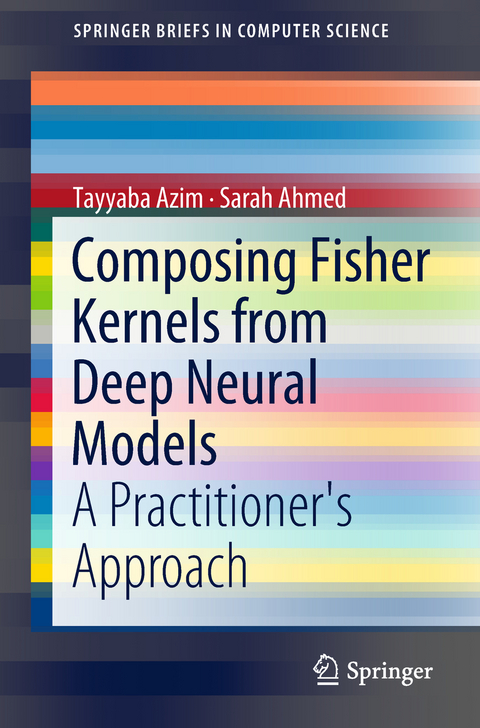
Composing Fisher Kernels from Deep Neural Models
Springer International Publishing (Verlag)
978-3-319-98523-7 (ISBN)
Dr. Tayyaba Azim is an Assistant Professor at the Center for Information Technology, Institute of Management Sciences, Peshawar, Pakistan. Sarah Ahmed is a current research student enrolled in Masters of Computer Science program at Institute of Management Sciences Peshawar, Pakistan. She has received her Bachelor's Degree in Computer Science from Edwardes College, Peshawar,Pakistan. Her areas of interest include: Machine Learning, Computer Vision and Data-Science. Currently, her research work is centered around the feature compression and selection approaches for Fisher vectors derived from deep neural models. Her research paper: "Compression techniques for Deep Fisher Vectors" was awarded the best paper in the area of applications at ICPRAM conference 2017.
Chapter 1. Kernel Based Learning: A Pragmatic Approach in the Face of New Challenges.- Chapter 2. Fundamentals of Fisher Kernels.- Chapter 3. Training Deep Models and Deriving Fisher Kernels: A Step Wise Approach.- Chapter 4. Large Scale Image Retrieval and Its Challenges.- Chapter 5. Open Source Knowledge Base for Machine Learning Practitioners.
| Erscheinungsdatum | 06.09.2018 |
|---|---|
| Reihe/Serie | SpringerBriefs in Computer Science |
| Zusatzinfo | XIII, 59 p. 6 illus., 5 illus. in color. |
| Verlagsort | Cham |
| Sprache | englisch |
| Maße | 155 x 235 mm |
| Gewicht | 144 g |
| Themenwelt | Informatik ► Theorie / Studium ► Künstliche Intelligenz / Robotik |
| Schlagworte | Deep Models • Feature Compression Techniques • Feature Selection Techniques • Fisher Vectors • Large Scale Information Retrieval |
| ISBN-10 | 3-319-98523-X / 331998523X |
| ISBN-13 | 978-3-319-98523-7 / 9783319985237 |
| Zustand | Neuware |
| Haben Sie eine Frage zum Produkt? |
aus dem Bereich


